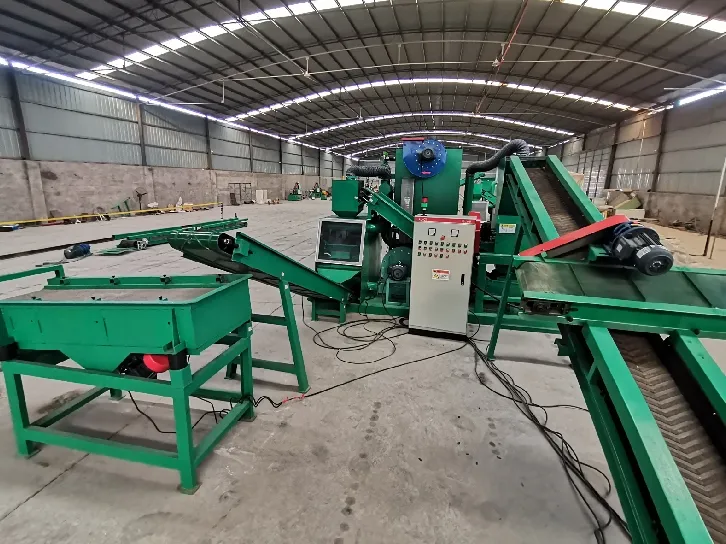

វិច្ឆិកា . 15, 2024 06:47 Back to list
The Importance of Municipal Solid Waste Sorting Lines
In an era characterized by rapid urbanization and increasing waste production, the management of municipal solid waste (MSW) has become a critical concern for cities worldwide. One effective strategy to tackle this issue is the implementation of municipal solid waste sorting lines. These specialized facilities play a crucial role in the waste management process by sorting, processing, and recycling various materials, thereby promoting sustainability and reducing environmental impact.
Municipal solid waste refers to the combination of household garbage, commercial waste, and other materials that are discarded by the general population. With the volume of waste growing at an alarming rate, effective waste management systems are essential. Sorting lines serve as the first step in this process, breaking down the waste into its constituent parts and ensuring that recyclable materials are extracted efficiently.
The sorting process typically involves a combination of manual labor and advanced technology. Initially, waste is collected from various sources and transported to the sorting facility. Upon arrival, the waste is dumped onto a conveyor belt where workers and machines begin the sorting process. Manual sorters remove large, non-recyclable items, while automated systems, such as optical and magnetic sensors, identify and separate recyclable materials like plastics, metals, and glass.
One of the primary benefits of municipal solid waste sorting lines is their ability to significantly reduce the amount of waste sent to landfills. Landfills can have detrimental effects on the environment, including soil and water contamination and the release of harmful greenhouse gases. By recycling and repurposing materials, sorting lines help to conserve natural resources, reduce energy consumption, and limit the negative environmental impacts associated with waste disposal.

In addition to reducing landfill waste, sorting lines contribute to the development of a circular economy. This economic model emphasizes the importance of reusing and recycling materials to create new products, rather than relying on the extraction of virgin resources. Sorting lines facilitate this transition by ensuring that valuable materials are recovered and reintroduced into the production cycle. This not only conserves resources but also creates job opportunities in the recycling and waste management sectors.
Moreover, the implementation of sorting lines can enhance public awareness and participation in waste management efforts. As communities recognize the benefits of recycling and the importance of waste separation, individuals become more conscious of their waste production and disposal practices. Educational campaigns and initiatives supporting waste sorting can encourage residents to play an active role in reducing waste generation and promoting sustainable practices.
However, the successful operation of municipal solid waste sorting lines requires investment in infrastructure and technology. Many cities face challenges related to budget constraints and the need for public-private partnerships to finance these facilities. Additionally, ongoing training for workers is essential to ensure efficient sorting processes and maximize recycling rates.
In conclusion, municipal solid waste sorting lines are invaluable assets in the quest for effective waste management and sustainability. By efficiently sorting and recycling materials, these facilities help to reduce landfill waste, conserve resources, and promote a circular economy. As urban areas continue to grapple with increasing waste production, investing in and improving sorting line infrastructure will be essential for creating cleaner, more sustainable cities. The role of sorting lines in fostering public engagement and awareness further highlights their importance in building a more sustainable future. By embracing these technologies and practices, communities can take significant strides toward responsible waste management and environmental stewardship.
Latest news
Troubleshooting Common Eddy Separator Problems
NewsJul.04,2025
The Role of Metal Recycling Plants in Circular Economy
NewsJul.04,2025
The Impact of Recycling Line Pickers on Waste Management Costs
NewsJul.04,2025
Safety Features Every Metal Shredder Should Have
NewsJul.04,2025
How Industrial Shredders Improve Waste Management Systems
NewsJul.04,2025
How Cable Granulators Contribute to Sustainable Recycling
NewsJul.04,2025